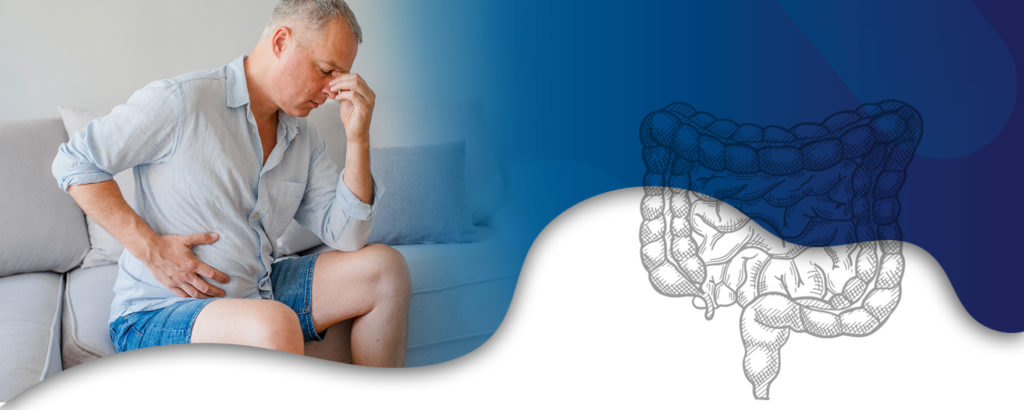Regularity
What is Constipation?

Occasional constipation is not a disease.
A soft stool is the key to regular, comfortable elimination. There is no more effective stool softener than water. It is generally defined as having less than three bowel movements per week. Typically, a constipated stool is hard and difficult to pass and may be accompanied by bloating and discomfort.
According to National Institutes of Health (“NIH”) National Digestive Diseases Information Clearinghouse:
- Occasional constipation affects almost everyone at one time or another.
- Many people think they are constipated when, in fact, their bowel movements are regular.
- The most common causes of constipation are poor diet and lack of exercise. Other causes of constipation include medications, irritable bowel syndrome, abuse of laxatives, and specific diseases
In most cases, simple tips will help relieve symptoms and prevent the recurrence of constipation, including:
 Eating a well-balanced, high-fiber diet that includes beans, bran, whole grains, fresh fruits, and vegetables.
Eating a well-balanced, high-fiber diet that includes beans, bran, whole grains, fresh fruits, and vegetables.- Drinking plenty of liquids.
- Exercising regularly.
- Setting aside time after breakfast or dinner for undisturbed visits to the bathroom.
- Not ignoring the urge to have a bowel movement. Normal bowel habits vary. Whenever a significant or prolonged change in bowel habits occurs, check with a doctor. Most people with mild constipation do not need laxatives. However, a doctor may recommend laxatives for a limited time for people with constipation.
Reference: NIH Publication No. 07-2754, July 200
Lifestyle Cause of Occasional Constipation
Dietary habits may be the most obvious contributor to constipation. Dehydration is a common problem. Diuretics may also cause dehydration. A diuretic makes the body take water from the blood and put it into urine. Sodas and alcoholic drinks are common diuretics. A lack of fiber may also contribute to constipation. Red meat, fried or sugary foods, dairy, and processed baked goods are high in calories but low in fiber. If these make up too large a portion of a diet, they crowd out high fiber foods such as whole grains, fruits, and vegetables.
 Staying fit is important for warding off constipation, because the body contracts muscles in the lower abdomen and upper legs to assist with bowel movements. A lack of exercise will make these muscles too weak to be much help. Maintaining regular habits is also vital to intestinal health. Travel and changes in bowel routines can contribute to constipation. Heed the urge to have a bowel movement, because resisting this call is a common cause of constipation. Stress can be also a contributing factor.
Staying fit is important for warding off constipation, because the body contracts muscles in the lower abdomen and upper legs to assist with bowel movements. A lack of exercise will make these muscles too weak to be much help. Maintaining regular habits is also vital to intestinal health. Travel and changes in bowel routines can contribute to constipation. Heed the urge to have a bowel movement, because resisting this call is a common cause of constipation. Stress can be also a contributing factor.
Other Causes of Constipation
Constipation happens more often during certain stages of life. Infants and children may be more likely to suffer from bouts of constipation. Constipation is also more common among the elderly. Pregnant women may experience constipation due to hormonal changes and the pressure of the growing uterus on the intestines.
Certain drugs and supplements, as a side effect, can be a cause of constipation. When abused, laxatives may lead to constipation and laxative dependency. Pain medications, antidepressants, and narcotics may cause irregularity. Medications for Parkinson’s disease and for high blood pressure may be linked, as are iron pills and antacids with aluminum or calcium.
Problems with the thyroid also may lead to constipation, as can problems of the nerves that connect to the large intestine. If the body loses too much salt through vomiting or diarrhea, irregularity can result. Sometimes hemorrhoids can cause anal sphincter muscle spasms which in turn causes constipation.
Life style factors such as diet, exercise, and routines affect constipation. Constipation happens more often during certain times of life. Certain drugs may contribute to constipation. When suffering from irregularly, try to eliminate certain causes of constipation.
Sources
1. Linda Page’s Healthy Healing, 12th Edition by Linda Page
2. Prescription for Nutritional Healing 3rd Edition by Phyllis Balch and James Balch
3. Constipation. Mayo Clinic
http://www.mayoclinic.com/health/constipation/DS00063/DSECTION=causes
http://www.mayoclinic.com/health/constipation/DS00063/DSECTION=risk-factors
4. The Basics of Constipation. WebMD
http://www.webmd.com/digestive-disorders/digestive-diseases-constipation
Like? Share with your friends
Learn more information on H2Go for Daily Regularity and Occasional Constipation*

